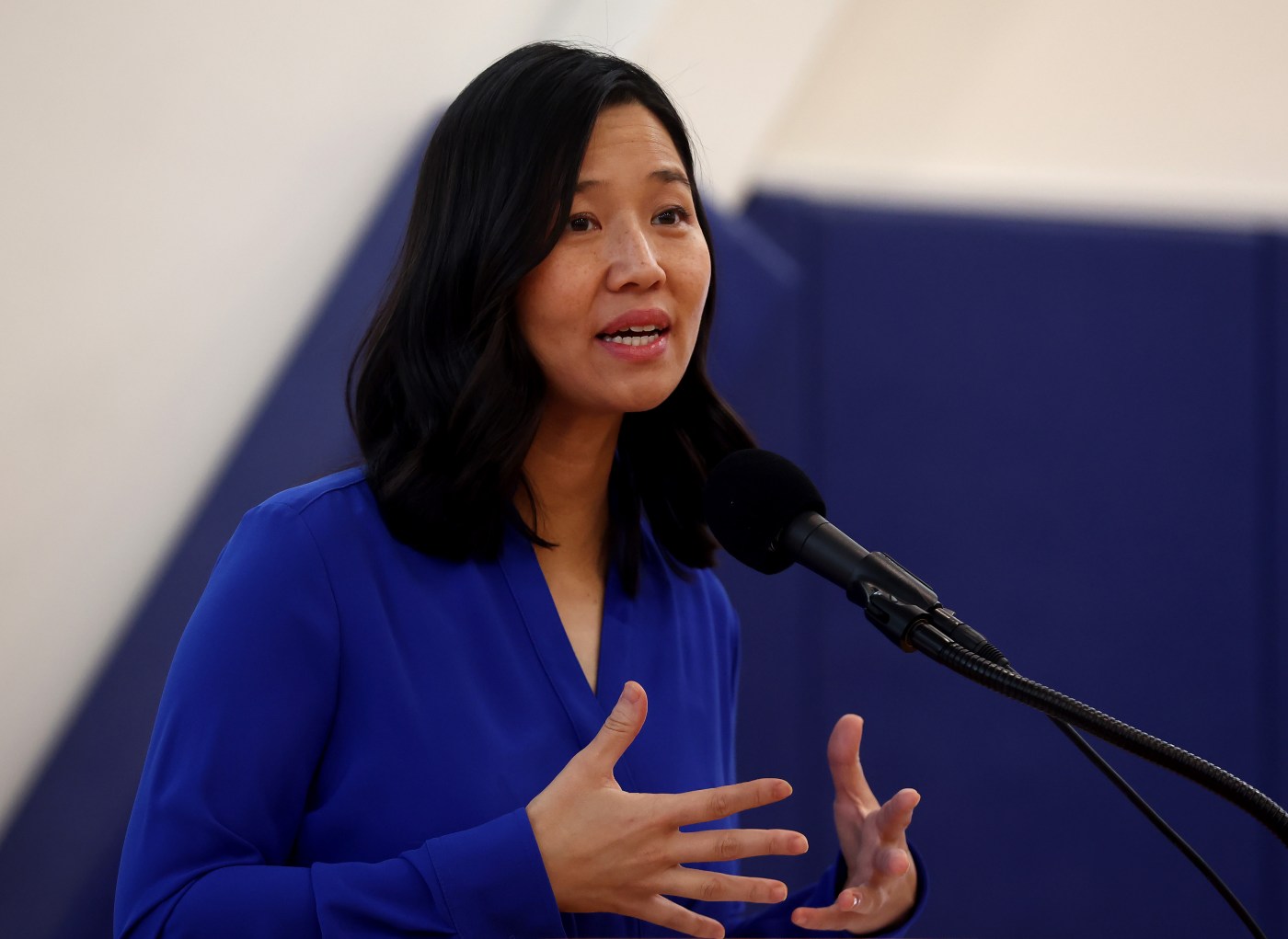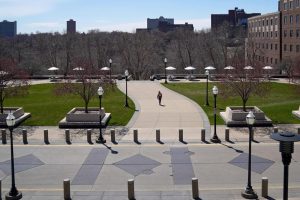
Boston Mayor Wu snubs City Hall fiscal watchdog event over yearlong tax beef
Boston Mayor Michelle Wu is snubbing an annual event hosted by the Boston Municipal Research Bureau and traditionally headlined by city mayors, after beefing all year with the City Hall watchdog over her stalled tax shift legislation.
Wu said she declined an invitation to serve as the featured speaker at the Research Bureau’s 93rd annual meeting luncheon — delayed by BMRB to April to comply with her schedule — to avoid taking part in a fundraising event that she saw as furthering the fiscal watchdog’s campaign to “lower corporate taxes.”
“For decades in Boston, BMRB was a trusted source of municipal finance and policy expertise,” Wu said in a statement. “Today they behave as a political action committee to lower corporate taxes. I declined the annual invite to present advanced insights on Boston’s budget at a $325/person lunch to fundraise for this cause.
“This is not about a ‘single policy disagreement.’ As councilor, I’d call BMRB for feedback and insights, as city officials had for decades. Their thorough, apolitical, data-driven analysis saw the city through some of our toughest challenges. Today’s BMRB is unrecognizable against that legacy,” the mayor said.
Wu’s decision to skip the annual luncheon, which will now be headlined by Lt. Gov. Kim Driscoll on April 10, is a break with tradition. Boston mayors have been speaking at the annual meeting since the mid-1990s, and often use the event as an opportunity to make a policy announcement or share plans for a new initiative.
The Research Bureau’s annual meeting is typically held earlier in the year, often in March, but was delayed to April this year due to the mayor’s schedule, Marty Walz, BMRB interim president, told the Herald.
Walz was among the four business stakeholders who backed away from a compromise brokered with the mayor late last year, after certified city assessment data showed Boston homeowners weren’t facing as steep of a tax hike as the city had initially projected when pushing for a temporary change in state tax law.
Soon after, the state Senate killed the mayor’s proposed tax shift legislation, which would have raised commercial tax rates to provide relief for homeowners, who were hit with double-digit increases in their January third-quarter bills.
The Research Bureau was among those who criticized the mayor’s tax plan, in light of the challenges facing the real estate industry and the city’s budgetary revenue structure.
Walz, in a statement on behalf of the Research Bureau, called the mayor’s decision “disappointing,” and one that she saw as being based on a “single policy” dispute.
“Throughout our 93 years, the nonpartisan Boston Municipal Research Bureau has produced fact-based, data-driven reports and analysis,” Walz said. “As a municipal watchdog, we have not always seen eye to eye with every mayor, but we have always worked together to ensure that Boston is a vibrant, livable and world-class city.
“We are disappointed that Mayor Wu has chosen not to participate in our annual meeting because of a single policy disagreement,” Walz said. “More conversation, not less, is needed to move Boston forward. This doesn’t change our shared goals for Boston’s success, and we remain fully committed to our mission and working with Mayor Wu and her team toward these goals.”
Gregory Maynard, executive director of Boston Policy Institute, said the mayor’s back and forth with the Research Bureau represents a “mask-off” moment for the Wu administration.
“This is now a pattern of behavior where the mayor doesn’t seem to be able to have policy disagreements with people without launching ad hominem attacks,” Maynard told the Herald.
Related Articles
Pols & Politics: Gov. Maura Healey and Mayor Michelle Wu’s immigration messaging is diverging
Josh Kraft slams Boston Mayor Wu for fancy campaign kickoff venue
Real estate developer Thomas O’Brien plans to run for Boston mayor, campaign source says
Advocates pressure Boston City Council to reject federal anti-terror grant over immigration concerns
Boston opens Youth Summer Jobs applications with thousands of positions
Maynard said he sees parallels between this situation and how the Wu administration treated a BPI report that was released last year.
Dismissed by Wu as “false information” and her assessing chief as “fiction,” the report projected the city could be facing a $1 billion-plus budget gap in five years due to vacant office buildings that were eroding its commercial tax base.
“This is a disagreement between the mayor who’s running a city that’s got pretty serious fiscal problems attacking the city’s longtime fiscal watchdog,” Maynard said. “The BMRB has been around for almost 100 years. Like, this is norm-breaking. This is the kind of stuff that’s ruined public conversations and destroys cities’ ability to solve problems.”
Marty Walz (Herald file photo)


